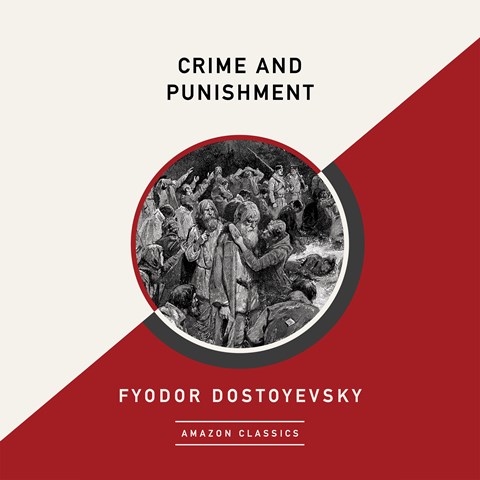
As Simon Karlinsky suggests in his essay "Dostoevsky as Rorschach Test," (cool essay title or coolest essay title?) how we interpret Crime and Punishment might be a reflection of our own psychology. Crime and Punishment-like most Dostoevsky joints-is incredibly fluid and open to a wide variety of interpretations. Ain't no Russian novel like a controversial Russian novel.because you just know that a controversial Russian novel is extra delicious, messed up, and challenging. Which is yet another reason to devour this book like your little cousin's Halloween candy stash, in our opinion. The novel has always been popular, though reactions to it can fall just about anywhere along the spectrum. Rewarding? Oh, heck yes.if only because you'll get to say, "Oh, Crime and Punishment? Yeah, I've read that one."įyodor Dostoevsky first published Crime and Punishment in 1866 in 12 monthly installments in a conservative journal, Russian Messenger ( Russkiy Vestnik). This is a novel all about the vice grip of intense pressures: the pressures of society, of class, of psychology, of morality, of Christianity, and of what it means to be a human in the world.Įasy? Ha. We exult in Raskolnikov and abhor him, wish to see him punished and desire to see him escape.Welcome to the novel whose title sounds like a cross between a game show and an episode of Law & Order: SVU.but is actually one of the most read, most studied, and most (in)famous works of literature in the world.Īctually, the best way to read Crime and Punishment is to not only feel all that pressure but to revel in it. We identify with this hero in a way that was impossible with the Underground man, an identification vexed by the fact that he is a murderer. In Crime and Punishment Dostoevsky explores the doubleness of Raskolnikov’s character and passes on a sense of tortured ambivalence to the reader. Richard Peace has excellently said that doubleness is both Dostoevsky’s artistic method and also his polemical theme (1971, p. This echoes the Underground Man, as does Raskolnikov’s ‘doubleness’.

1) at the end he describes his having sat ‘skulking in my room like a spider’ ( v.4). At the beginning he describes himself as ‘lying about all day long in that beastly hole and thinking - thinking all sorts of absurd things’ ( I. There are some hundred references to Raskolnikov’s isolation. Like the Underground Man, Raskolnikov is a soured or perverted idealist who has absorbed many modish new ideas and who is offered spiritual regeneration through a relationship with a prostitute. Notes from Underground, the prologue to the four great novels, is a dress rehearsal for Crime and Punishment in particular.


 0 kommentar(er)
0 kommentar(er)
